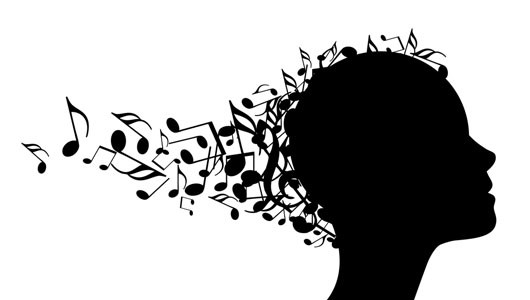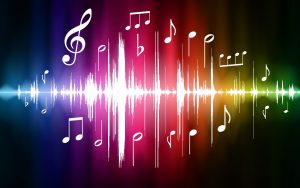
03 Mar Why does music make us feel so good?
Humans and even animals love listening to music, after all it can evoke so many different emotions. Just like the feelings that people get when they gamble, taking drugs or eating food, it boils down to the dopamine. On hearing a song you enjoy, it evokes a strong response and your releases dopamine, also known as the ‘feel-good chemical’. These are chemicals that are involved in both motivation and addiction. Even the anticipation of hearing your favourite songs is enough to start the dopamine flow.
This is a fairly recent discovery – the relationship between dopamine and music explains why music has become a big part of our existence since the beginning of time. Dopamine is a molecule that induces feelings of reward and is very adaptive. The original biological aim for dopamine was to encourage animals and humans to go in search of food before they become hungry.
Neuroscientists believe that following the rhythm of a song and anticipating what comes next, whether right or wrong is what keeps us hooked, giving us a small cognitive victory that provides pleasure. The amount of enjoyment we get from music explains why it has featured in every culture on every continent.
One study has even linked the pleasure experienced by listening to music with the physiological surge in emotional arousal that includes changes in heart rate, increased pulse rate and respiratory rate. People can also experience the same feelings with shivering or chills. Scientific studies have noted that when people experience these feelings, the actual blood flow increases to the area of the brain that releases dopamine. This is why we hear music when we were shopping. Retailers want us to feel good, comfortable and ideally for our dopamine to be released. For help with choosing the right Instore Music for your business, visit a site like Mood Media for Instore Music advice.
These experiments show for the first time that the brain releases a large amount of dopamine when it hears the music that gave them a feeling of ‘shivers’.
To further examine that this reaction actually occurs, scientists took a few music lovers and injected them with a radioactive fluid that binds to dopamine receptors. By using a PET scanner, they were able to see whether the substance moved through the blood that would indicate that dopamine has been released when the music sounded. Where the dopamine receptors were activated, the radioactive substance would stick to them.
When the relationship between music and dopamine was established, the participants were put into an MRI machine to scan their brain while music was played. The results of the MRI scan showed the scientists for the first time how the brain releases dopamine both during the phase of ‘chills’ but also before the music even heard, when the listener is still in the anticipation stage. The dopamine is also released from two different areas of the brain.



No Comments